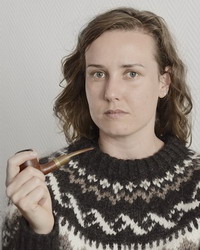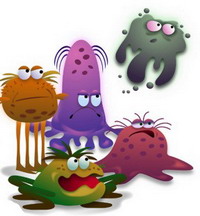
Research that makes people laugh and then think
 Tullia Jack |
The press about science and not only  Swedes Obsession with PurityNobody was dirty sydsvenskan April 20, 2017 There are many ways to look clean, writes Tullia Jack, a doctoral candidate in sociology at Lund University, Sweden. The average number of washing and drying appliances in Swedish homes increased from one in the 1950s to three in 2000. Many today have a washing machine, dishwasher and dryer. But these machines, designed to save time, did not produce the expected effect. Statistical study of Sweden, devoted to the use of time, conducted in 2010, shows that men use 7 hours a week for activities for cleanliness, and women - 11 hours. The word Saturday comes from the Old Norse ablution, bathing. It was a day when people cleaned their bodies and houses. Today, cleaning in no way happens on Saturdays. Cleanliness increasingly leads to greater consumption of water, energy, chemicals like never before. At the same time, the climate is changing, and the constantly growing population of the Earth must share limited resources. In Sweden, people in search of cleanliness consume large amounts of water, energy, and time. Nearly 70 percent of household water is consumed for dishes, laundry and personal care products. More than 100,000 tons of detergents are used annually. Obsession with the Swedes purity may be the cause of high electricity consumption in the country. It uses 13.48 MWh per capita per year compared to 8.03 MWh in the OECD (the international economic organization of developed countries). The global average is 3.03 MWh. Agnes Vold, a professor of clinical bacteriology at the University of Gothenburg, calls for an end to purity hysteria. She thinks it is silly to clean as much as they do in Sweden, because it is impossible to clean the bacteria. Cleanliness is a real trap for energy and water, and therefore we must change our habits. There are more fun things than counting every drop of water and kWh of energy you use. A slight decrease in the temperature of the washing machine helps to save energy. Cleanliness is influenced not only by technical decisions, but also by social agreements. One of them is to put all your resources for cleaning. But the other is to think about the environment and climate. Like this: shower less. Dishes less often. Wash less often. Proven abstracts, Tullia Jack confirms in his article "Nobody was dirty: Intervening in inconspicuous consumption of laundry routines" (Journal of Consumer Culture, November 2013, Vol. 13, No. 3). As part of a research project, 31 people in Melbourne (Australia) wore the same pair of jeans for three months without erasing them. There were fifteen women, plus the author and sixteen men. People recruited through social networks. 31 was chosen from 79, so as to achieve some diversity in age, sex and profession. The youngest participant was eighteen, the eldest was fifty-six, the average age was thirty-one. Transcripts from interviews about their experiences were used to understand how individual courses of action are determined by collective agreements. Participants ’experience in terms of materiality, habits, and cultural context indicates that modifying collective bargaining agreements may be more effective than saving individual procedures to save environmental resources. The article discusses some of the possibilities to interfere with the inconspicuous consumption of washing procedures and the shift of collective agreements to the low acceptability of washing, which is important for the methods of resource consumption - water, energy, chemicals. I think jeans cannot smell worse than they smell, writes Tullia Jack. You can make them even dirtier than they are, but it's like salt. You can dissolve only a certain amount of salt in water. The same with jeans, smells and bacteria, you can put so much in there, but it won't be worse. Participants' reflections on their experience without washing jeans were surprisingly perceptive. Morgen - every night without fail I turned them inside out and hung them near the window. Luke - I hang them on the waist loop on the back, sometimes inside out, if you put it in the closet, any odors get worse. Jeremiah - I would just ventilate them, if I could, try doing it at least once a week.
Источник - пресса |
| (c) 2010-2024 ig-nobel.ru | ig-nobel@mail.ru |

